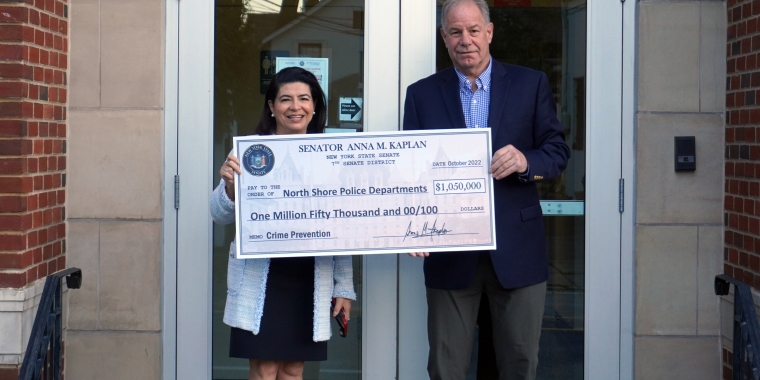
Short-term gain, long-term loss

Gov. Andrew M. Cuomo’s top priorities for Long Island have always included expanding the region’s economy with support for new technology and research companies, especially in the development of a renewable energy industry here to help fight climate change.
That’s why Cuomo’s proposal to slash the funding of the state’s 29 Centers of Excellence and Centers for Advanced Technology is so puzzling. This move could mean less funding for the four burgeoning centers at Stony Brook University that are so critical to the Island’s economic and environmental future. Additionally, why would he consolidate those two successful programs, forcing all of the centers to compete against each other, a process that eventually could leave some centers with nothing?
Granted, the state needs to fill its budgetary hole. But none of the 29 centers, including the four at Stony Brook, gets more than $1 million a year. Cuomo’s budget proposal shrinks the total pool split among the centers to $19.5 million. Last year, he started at $23.4 million, but the State Legislature later increased funding to $26.7 million.
State officials note that there’s an additional $1.5 million in this year’s executive budget that individual projects can vie for, and they emphasize that competition benefits the system. They argue that Stony Brook’s centers have been successful, and likely would do well in this new statewide competition.
But there’s no good reason for the shortsighted changes.
That’s especially true on Long Island. With the selection of Brookhaven National Laboratory as the site of a new electron-ion collider the state is helping to fund, the Island is on the cusp of developing a commercially successful research corridor business advocates have dreamed about for decades. The four centers are a major component, acting as incubators that can turn cutting-edge research into companies. Without their strength, a key piece of the state’s economic strategy will be lost.
Even more significant, two of the Stony Brook centers — the Advanced Energy Research and Technology Center and its Center for Integrated Electric Energy Systems — are developing research and companies tied to the state’s renewable energy needs. The Advanced Energy Center is home to the national offshore wind consortium established in 2018. Cutting its funding or forcing it to compete, especially with other centers on the Stony Brook campus, would be antithetical to everything the state is trying to do.
While this is a statewide concern, Long Island advocates have taken the lead in opposing the proposal, including State Sen. Anna Kaplan, who chairs the Commerce, Economic Development and Small Business committee. She has taken the battle to Senate Majority Leader Andrea Stewart-Cousins and, since most of the centers are based outside of New York City, this is a fight Stewart-Cousins will have to lead.
It’ll be up to the State Legislature to force Cuomo’s hand and produce a budget that fully funds the centers, and restores the certainty they and their entrepreneurs demand. Any decision that favors saving a few million dollars over reaching for the state’s long-term economic and environmental goals is anything but excellent.
— The editorial board


